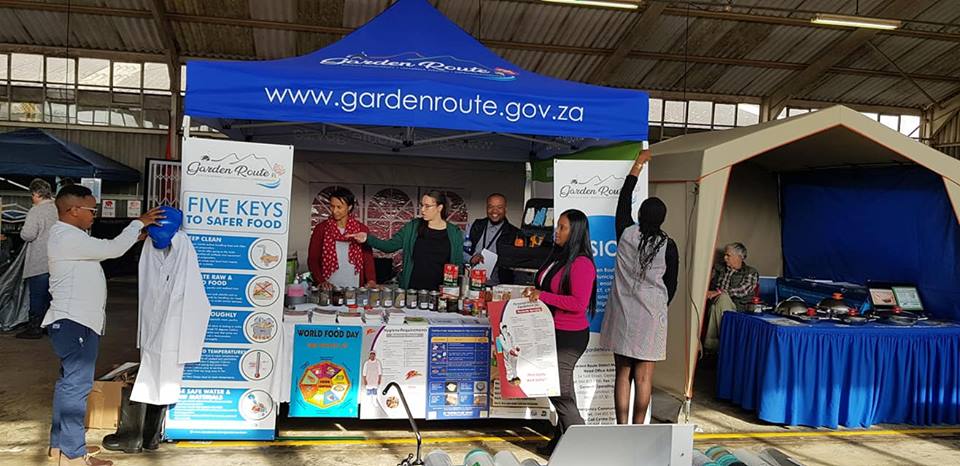What is food safety?
Food safety is a scientific discipline, which describes the handling, preparation, and storage of food in ways that prevent foodborne illnesses. The WHO defines ‘Food Safety’ as the assurance that food will not cause harm to the consumer when prepared and/or eaten in accordance with its intended use. ‘Food Hygiene’ is defined as all the measures necessary to ensure the safety, soundness and wholesomeness of food at all stages from its production or manufacturing until it is consumed.
Why is food safety important?
The purpose of food safety is to ensure that FOOD IS SAFE TO EAT in order to protect the consumer.
Contaminated food and water are the biggest sources of food borne illnesses that affect people, particularly in South Africa. This phenomenon is also true throughout the world. The problem does not discriminate between rich or poor countries, but in both cases, contaminated food imposes substantial health burdens, ranging in severity from being mildly sick to fatalities.
Food safety is an increasingly important public health issue and according to the World Health Organisation (WHO), governments all over the world are intensifying their efforts to improve food safety. This is largely due to rapid globalisation, overpopulation and the importance of the safety when food gets transported from one country to another. Together with this, there has been a dramatic increase in the number of people travelling internationally for, amongst others, sport, tourism and business purposes etc.
Food safety in South Africa safety in South Africa
The services rendered by health authorities in South Africa aims at ensuring that the food consumers are not exposed to food that causes any harm. This is also referred to as “Food Safety Control” and can be defined as a mandatory regulatory activity of enforcement by the relevant health authority. Consumer protection has to be provided and it needs to be ensured that all foods are safe during production, handling, storage, processing, and distribution phases. Food has to be fit for human consumption and conform to safety requirements as prescribed by law and the World Health Organisation (WHO).
Legislation exists to ensure that all foodstuffs and food handling facilities comply with health standards that protect consumers from unsafe food or conditions that are unhygienic.
Although South Africa is considered a developing country, the food industry of the country can be considered as a well-developed and sophisticated sector, geared towards safeguarding the needs of consumers through both the formal and informal sectors of the country’s economy. This includes the entire food chain:
A consumer’s role in the food chain
One might assume that the buck stops at the food producer or trader, or a government authority responsible for enforcing regulations, but this is a myth. Neither the government nor the food producer and traders can ensure that a food consumer practices hygiene standards and food safety at home. Or that consumers willfully support businesses who do not possess a “Certificate of Acceptability”. Consumers also have to act responsibly and report instances where foul play is suspected. All food traders must, therefore, at all times, clearly display their “Certificate of Acceptability”, where they trade; otherwise, Government cannot be held liable for any unintended consequences which may result by negligent food traders and producers.
- Food production on farms
- Processing at factories
- Selling at the retail level (Wholesalers, Supermarkets and Spaza shops)
- Ready to eat meals (hotels, catering businesses, restaurants, fast food outlets, street food vendors, etc.)
Environmental Health Practitioners (EHPs) conduct daily inspections
According to the myriad of responsibilities of EHPs, Food Control is one of the areas which require the most time and complex responsibilities.
Food Control relates to a mandatory regulatory activity of enforcement to provide consumer protection and to ensure that food is:
- handled in a hygienic manner during production, storage, processing, distribution and sale;
- safe, wholesome and fit for human consumption and conforms to safety, nutrition and quality requirements; and
- honestly and accurately labelled as prescribed by law.
The role of the Environmental Health Practitioner includes, but is not limited to the following:
- Inspection of food premises and vehicles
- Compliance monitoring in terms of legislative requirements and provisions and instituting remedial and preventative measures
- Issuing of certificates of acceptability
- Examination, sampling and analysis of foodstuffs
- Examination of food labels
- Reaction to complaints
- Law enforcement by serving compliance notices or if deemed necessary by issuing “summonses to appear in Court” notices (Sect 56 of Criminal Procedures Act. 1977)
- Export control when requested
- Provision of information
- Health promotion and training
Legislation around food control and safety
- The Constitution of South Africa 1996, (Act 107 of 1996)
- National Health Act 2003, (Act no 61 of 2003) as amended
- Foodstuffs, Cosmetics and Disinfectants 1972, (Act 54 of 1972)
- Guidelines for an Environmental Health Officer (EHO) Engaged in the evaluation of food premises within the HACCP principles, Department of Health
Directorate: Food Control
For more information, consult the Environmental Health Practitioner at Eden District Municipality, Community Services Department, Municipal Health Services’ Office at 044 -8031522. Or visit the office at Mission Street, Roads Department, George Industria.

























